Girls with Autism Imaging of Neurodevelopment (GAIN) Study
The goal of the Girls with Autism Imaging of Neurodevelopment (GAIN) Study is to better understand sex differences in autism.

GAIN Study
Purpose
Autism is diagnosed about 5 times more frequently in boys than in girls. The presentation of autistic traits in girls is often very different than in boys. However, most autism research in the past has been focused only on boys. As a result, we don't yet fully understand the relationship between biological sex and autism.
The goal of the Girls with Autism Imaging of Neurodevelopment (GAIN) Study is to better understand sex differences in autism. Eventually, we hope this information will help us in finding the best ways to identify and support autistic girls.
The GAIN Study started in 2014, led by Dr. Christine Wu Nordahl. Both autistic and non-autistic girls were enrolled in the study when they were between 2-4 years old. We then followed up with them at time points one year and two years later. We look at many different factors to help us get a complete picture of each child. This includes behavioral and neuropsychological assessment, medical history, blood draw, and an MRI scan of the brain.
Over 120 girls have participated in our research program to date. The GAIN Study is the largest MRI study of young, autistic girls in the world. We are very appreciative to all of the families that have participated so far and have helped us to improve our understanding of autism.
Current phases of GAIN
We are continuing to follow-up with the original participating families, as well as enroll new participants.
Early Childhood
In the early childhood phase of the study, we hope to improve our understanding of early brain development, behavioral presentations of autism, and co-occurring medical conditions in young girls. Depending on their child's age at enrollment, families may be asked to return for follow-up visits 1 year and 2 years after they first join the study.
We are currently enrolling autistic and non-autistic girls who are 2-6 years old.
Middle Childhood
Autism can impact individuals differently throughout life. In this phase of the GAIN, we focus on autistic traits, co-occurring medical and mental health conditions, and brain development. We are particularly interested in emergence of ADHD and anxiety. We also are looking at how behavioral or biological characteristics in early childhood may predict the strengths and challenges a child will face in middle childhood.
We are currently inviting families who participated in previous phases of GAIN to return for this phase of the study when their child is 9-12 years old.
We are also enrolling autistic and non-autistic boys and girls who are 11-12 years old in our related study, APP.
If you are interested in participating in any of the studies listed above, please contact our team
at hs-GAINStudy@ucdavis.edu.
Related studies
The GAIN Study builds on the work of the Autism Phenome Project (APP), a long-running study at the MIND Institute.
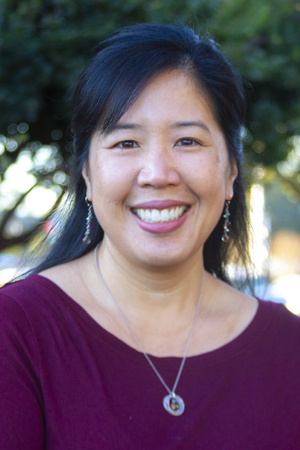
Dr. Nordahl is a professor and neuroscientist in the Department of Psychiatry and Behavioral Sciences. She received her undergraduate degree from Cornell University and graduate degree in neuroscience from UC Davis. She began her career at the MIND Institute as a postdoctoral fellow and has been working on the Autism Phenome Project (APP) since the beginning of the project, spearheading efforts to acquire MRI scans in infants and toddlers during natural sleep, without the use of sedation or anesthesia. She is also committed to increasing inclusion of autistic individuals with intellectual disability in neuroimaging research. Dr. Nordahl joined the MIND Institute faculty in 2011 and was named the Beneto Foundation Endowed Chair in 2022. She initiated the Girls with Autism - Imaging of Neurodevelopment (GAIN) Study in 2014 to focus on autism in females. Together with her team, she founded NeuroTeens in 2021, a social support group for neurodivergent girls and nonbinary teens.

Dr. Amaral received his undergraduate education at Northwestern University and graduated with a degree in Psychology. He then moved to the University of Rochester where he received a joint PhD in Neuroscience and Psychology. He conducted postdoctoral research at the Department of Anatomy and Neurobiology at Washington University. He then moved to the Salk Institute for Biological Studies where he remained for 13 years. During this period, he was also an adjunct professor in the Department of Psychiatry at UC San Diego. Dr. Amaral joined the University of California, Davis in 1995 as a Professor in the Department of Psychiatry and Behavioral Sciences and the Center for Neuroscience. He is also a core scientist at the California National Primate Research Center. Dr. Amaral was the Beneto Foundation Chair and Research Director of the MIND Institute from 1998 to 2018. He also serves as Director of Autism BrainNet. Dr. Amaral started the Autism Phenome Project in 2006 with the collaboration of numerous MIND Institute faculty and staff, and the project has become the largest, single-site, longitudinal analysis of young children with autism. Dr. Amaral is the Director of the UC Davis Autism Center of Excellence. In 2015, he became Editor-in-Chief of Autism Research, the journal of INSAR. In 2019, Amaral was elected to the prestigious US National Academy of Medicine.

Dr. Solomon is a Professor in the Department of Psychiatry and Behavioral Sciences, the MIND Institute, and the Imaging Research Center. She also is a licensed clinician with a broad background in clinical assessment and psychosocial intervention for higher functioning individuals with autism. In 2007, she received a K08 Career Development Award to use cognitive neuroscience methods including fMRI to study higher cognition. From 2012-2012, Solomon served as an appointee of HHS Secretary Kathleen Sebelius to the InterAgency Autism Coordinating Committee (IACC). Dr. Solomon’s ultimate goal is to apply what she learns through her neuroscience investigations to the development of interventions – the area where she began her career at the MIND, and one she continues to develop as the Director of the MIND social skills training group program. She is fortunate to have received philanthropic funding for this program from Joyce and Jim Teel for the Thomas P. Raley Foundation. An Endowed Chair from the Oates Family Foundation and funding from the UC Davis Behavioral Health Center of Excellence has permitted her to further develop intervention programs for autistic adults.
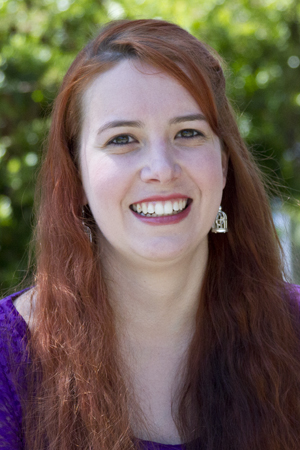
Dr. Heath is a program manager at the UC Davis MIND Institute. She earned her Bachelor of Science degree in Biology from Southern Oregon University and her PhD in Human Genetics from the University of Pittsburgh, working with cell and animal models of neurodegenerative disease, before moving into autism research. Her role serves as a bridge between project leaders, collaborators, the research team, and participating families. She oversees the operations of several multi-disciplinary autism research studies including the Autism Phenome Project (APP) and the GAIN Study. Her role serves as a bridge between project leaders, collaborators, the research team, and participating families.
She also serves on the MIND Institute Diversity, Equity, and Inclusion Committee, aids with sharing research findings through the IDDRC (Intellectual and Developmental Disabilities Research Center) Scientific Dissemination efforts, and is an alum of the Leadership Education in Neurodevelopmental and Related Disabilities (LEND) program. She has ADHD and is passionate about promoting self-advocacy for neurodivergent individuals. Across all these domains, her work is aimed at bridging the gap between those with lived experience and the policy makers, clinicians, and researchers whose work directly affects the lives of those individuals.
Our study coordinators work directly with families at each step of the research process. They schedule visits and guide families during study visits.
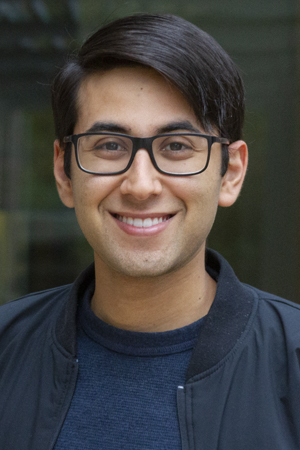
Shayan Alavynejad, B.S.
Shayan Alavynejad is a Junior Specialist at the MIND Institute. He graduated from UC Davis in 2021 with a B.S. in Biological Sciences. As an undergraduate, he volunteered with the APP and GAIN studies as a research assistant aiding with MRI scans and data entry and with Dr. Bibiana Restrepo on analysis of gastrointestinal symptoms in autistic children. He is currently a study coordinator on the GAIN studies and a pilot study on gastrointestinal assessment methods through the MIND Autism Center of Excellence. In the future, Shayan plans to become pediatric gastroenterologist, with a focus on providing quality medical care for autistic children.
Our clinicians administer the different assessments and interviews done with each child. Families will work with one or more clinicians over the course of their study participation.
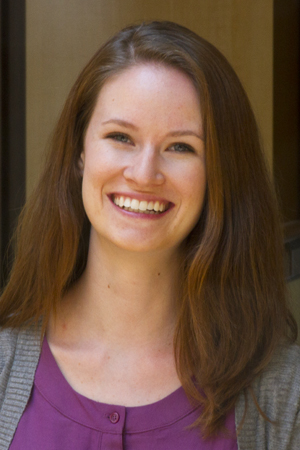
Alexa Hechtman, M.A., A.C.C.P.
Alexa Hechtman is a School Psychologist and Registered Associate Professional Clinical Counselor. She received her BS in Psychology at UC Davis and received her MA in Education and EdS in School Psychology at California State University Sacramento. As an undergraduate, she joined the GAIN study at the MIND Institute as a volunteer research assistant in 2013. She continued on as a study coordinator for GAIN starting in 2015 has been a program coordinator for APP, GAIN, and related studies since 2020. In her current role, she administers standardized language, academic, and cognitive assessments with study participants and clinical diagnostic interviews with their parents. She is interested in strengths-based assessment, clinical evaluation of anxiety in children with autism and intellectual disability, and behavioral and mental health supports for students with neurodevelopmental disabilities.

Michelle Hunsche, MA
Michelle Hunsche is a clinical psychology graduate student working on her PhD with Dr. Connor Kerns at University of British Colombia. She completed her BA in Psychology at Kwantlen Polytechnic University and MA in Clinical Psychology at the University of British Colombia. Her master's thesis examined social functioning and the presentation of anxiety in autistic children. Her current research interests include Theory of Mind in autistic individuals with anxiety compared those without anxiety. For the APP and GAIN studies, she conducts clinical diagnostic interviews for anxiety and depression with participants and their parents.
Our pediatricians meet with families to collect information about medical history and to conduct a physical exam with each child. Families will typically meet with one pediatrician during the study.

Linda Copeland, M.D., B.C.B.A.
Dr. Copeland is a Developmental and Behavioral Pediatrician. She received her bachelor’s degree in physiology from UC Davis and graduated from the UC Davis School of Medicine in 1979. She completed her residency in Pediatrics at the University of Iowa Hospitals and Clinics, where she also did fellowships in Child Psychiatry and in Developmental-Behavioral Pediatrics. She worked at Alta California Regional Center for 6 years, where she co-authored a successful Sierra Health Foundation grant in 1993 to develop behavioral intervention services working with the UCLA Young Autism Project. She was one of the founders of the first Families for Early Autism Treatment (FEAT) non-profit group in Sacramento. She earned her Board Certification in Behavior Analysis (BCBA) credential in 2009. She had a part-time faculty position teaching at the Fresno-UCSF Pediatric Residency Program for 5 years. More recently, Dr. Copeland has worked as an independent contractor with the UC Davis MIND Institute to assist with various research studies that include the Autism Phenome Project (APP), GAIN, BRAIN, and STAAR studies.
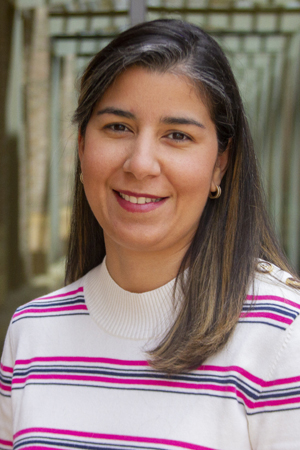
Rosa Rodriguez, M.D.
Dr. Rodriguez is a Developmental and Behavioral Pediatrician with interests in neurodevelopmental disorders. She has a special interest in infants and toddlers at risk for developmental delays, and in supporting high risk infants and early childhood development. She is also passionate about providing care to the undeserved population.

Bibiana Restrepo, M.D.
Dr. Restrepo is a board-certified Developmental and Behavioral Pediatrician. She has experience in treating children with neurodevelopmental problems, particularly offering care for children with autism and their families. She has a special interest on strengthening the collaboration between community practitioners, therapy providers and autism diagnosticians. Dr. Restrepo's research interests focus on improving the knowledge and understanding of early presentations of autism with an interdisciplinary approach, while including underrepresented communities and promoting global collaborative efforts.
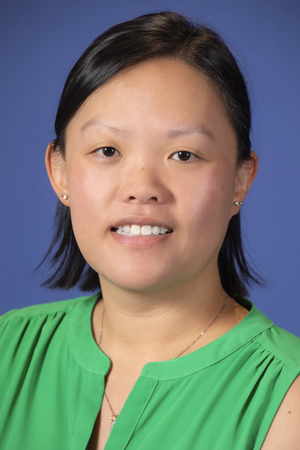
Van Ma, M.D.
Van Ma is Developmental-Behavioral Pediatrics fellow at the UC Davis MIND Institute. She received her medical degree from St. George’s University School of Medicine and completed her pediatric residency at Newark Beth Israel Medical Center. Prior to starting medical school, she worked as a behavioral therapist in the Bay Area. She is passionate about researching the genetic and environmental factors behind Autism to improve medical management and, ultimately, quality of life.
Our BCBAs assist with our MRI process to help children feel comfortable with the MRI environment and have a successful scan. Not all children will need this assistance, but families who choose to have a BCBA assist with the MRI will work with one BCBA throughout the process.

Christina Forgét
Christina Forgét is a Board Certified Behavior Analyst who serves individuals diagnosed with autism and related development disabilities in school and clinic-based settings. She graduated with a Masters of Science Degree in Behavior Analysis from the California State University, Stanislaus in 2009. Christina has been a part of the Autism Phenome Project since 2016. As a Board-Certified Behavior Analyst, Christina uses evidence-based strategies to support participants through the MRI process. In addition to her work on our studies, she trains and supports educators in a local school district to use evidence-based practices in the classroom, with intentions to improve academic, social and behavioral outcomes for students ranging in age from 5 to 22 years. She is a participating member with the California Autism Professional Training and Information Network (CAPTAIN) from 2016 to present.
Our research team analyzes the data we collect through the study. This includes people at different levels of their career and education, including graduate students, fellowship trainees, and professional researchers. Most of these individuals work "behind the scenes." However, some help with our MRI process, and families may meet them during an MRI visit.
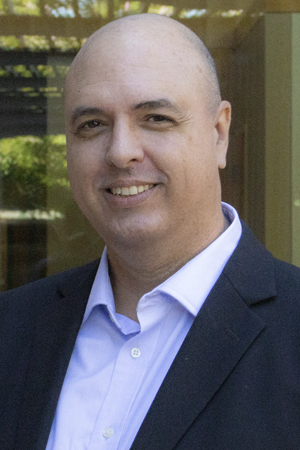
Joshua Lee, PhD
Dr. Josh Lee is an Assistant Professional Researcher at the MIND Institute. As a developmental neuroscientist, his research characterizes processes of brain development in individuals with neurodevelopmental disabilities. Dr. Lee received his Ph.D. in Psychology at the University of California, Davis in 2016 where he conducted research on typical and atypical development of the hippocampus and episodic memory. As a post-doctoral fellow at the UC Davis MIND Institute Autism Research Training Program, Dr. Lee conducted research examining the development of autistic neurophenotypes in males and females. Dr. Lee has expertise in longitudinal statistical analysis, high-resolution structural MRI imaging, and resting-state functional MRI. Dr. Lee is currently pursuing research to elucidate elevated coincidences between autism and gender diverse identity, an under-served intersection. In addition to his analytical role on the study, Dr. Lee also operates MRI scan sessions for the APP and GAIN studies.

Derek Sayre Andrews, PhD
Dr. Derek Andrews joined the MIND Institute in 2017 as a postdoctoral scholar after receiving his PhD in Neuroimaging from King’s College London, UK. Dr. Andrews’s research focuses on the analysis of magnetic resonance images of the brain to increase our understanding of the biological basis of autism. As a member of the MIND Institute, he has published studies identifying brain measures associated with different autism symptom trajectories over childhood as well as co-occurring anxiety and sleep problems in autistic children.

Einat Waizbard-Bartov, MA
Einat Waizbard-Bartov is a PhD student in the Department of Psychology. Einat earned her BA in behavioral sciences at Ben-Gurion University (Israel) and her MA in clinical psychology (child focused) at the Academic College of Tel-Aviv-Yafo (Israel). Before coming to the US, Einat worked at the Autism Research Lab in the department of Psychology at Bar-llan University (Israel). Einat is a licensed clinical psychologist in Israel and a certified Cognitive Behavioral Therapist. As part of her clinical work, she conducted clinical assessments and provided individualized interventions, parent trainings and facilitated social skills groups for preschoolers, young children, and adolescences, both neurotypical and diagnosed with ASD. Her current research interests include the core symptoms of ASD, change in developmental trajectories over time and the female autism phenotype.
These members of our team help with specific parts of our study. Most of these individuals work "behind the scenes," but families may sometimes see them during visits.
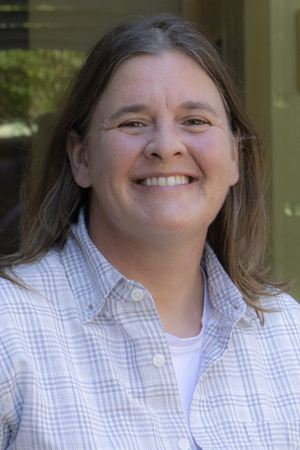
Melissa Regester, B.S.
Melissa Regester joined the research team in 2017 as a Lab Assistant. She is responsible for processing and managing inventory of biospecimens from APP participants. She maintains a specialized database system to track available quantity and quality of processed materials like DNA and blood cells and helps coordinate sharing materials with research collaborators. She has also undergone training at the MIND Institute to assist the pediatric phlebotomist during blood draws to ensure participant and staff safety. In addition to her role on the research team, Melissa maintains the MIND Institute Biorepository and manages operations for the MIND Institute Bioscience Building.
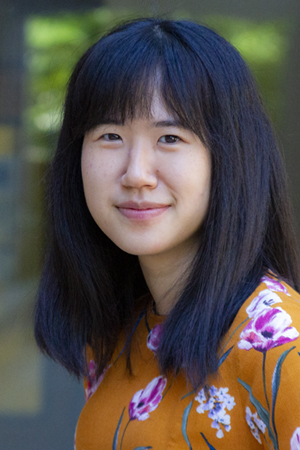
Soo Yeon Park, BS
Soo Park is a Research Data Analyst at the MIND Institute. She received a BS in Statistics and a BA in Psychology from the University of California, Davis combining her interest in statistical methods and the field of mental health. Soo serves multiple research teams and projects with various data-related tasks.
Resources for Participants
MRI sounds
MRI infographic
MRI social story
Anxiety resources
Depression resources
Suicidality/self-harm resources
Join our research participant registry (RPR)
Contact Us
Gain Study Coordinators and General Inquiries: HS-GainStudy@ucdavis.edu.
Program Manager
Brianna Heath
Phone: 916-703-0452
Email: bheath@ucdavis.edu

